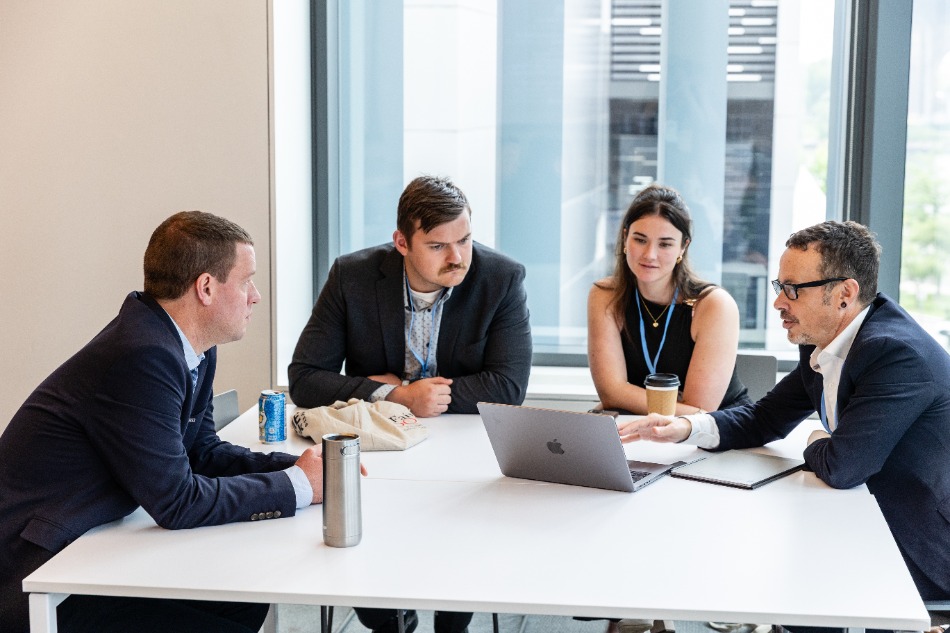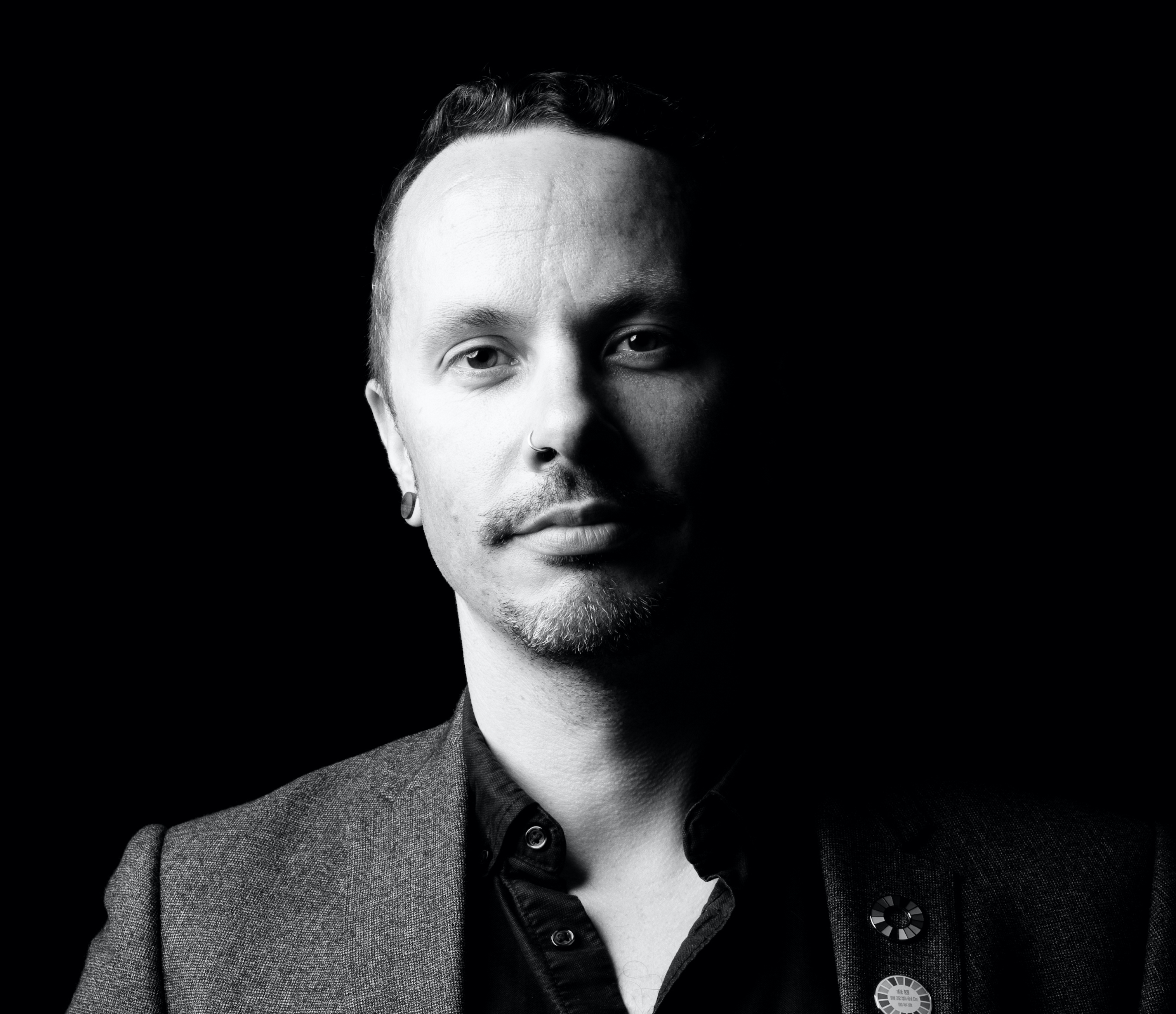Expert Insights from Dr. Alex Hope
We’re proud to continue our guest blog series with Dr. Alex Hope, Deputy Faculty Pro Vice-Chancellor at Northumbria University’s Faculty of Business and Law. A leading voice in ESG, responsible leadership, and sustainable business strategy, Dr. Hope brings a global perspective shaped by academic research, consultancy experience, and involvement in international sustainability initiatives.
In this latest instalment, Dr. Hope reflects on his recent visit to the United Nations in New York for Responsible Management Education Week. From the corridors of the UN to the classrooms of Cornell University, he shares how global frameworks such as the UN Sustainable Development Goals (SDGs) are being translated into action — and why local leadership in regions like the North East of England is essential to delivering real change.
Drawing connections between international momentum and place-based initiatives here at home, Dr. Hope explores how businesses, educators, and communities can collaborate to build a more inclusive, sustainable economy. Read on to discover why sustainability is not just a global ambition — it’s a local responsibility.
A Global Gathering for Responsible Management Education
Last month, I found myself standing inside the United Nations headquarters in New York City, surrounded by business school leaders, researchers, and students from around the world. The occasion was Responsible Management Education (RME) Week, a powerful convergence of institutions and ideas focused on reshaping business education to meet the pressing social and environmental challenges of our time.
Aligning Business Schools with Sustainability Goals
Over the course of the week, I took part in three interconnected events. At the PRME Global Forum, hosted by the United Nations-supported Principles for Responsible Management Education, we explored how business schools can embed sustainability, ethics, and societal impact into leadership education. Nearby, at Cornell University on Roosevelt Island, AACSB, one of the world’s leading business school accreditation bodies, ran its Societal Impact Curriculum Workshop, encouraging educators to think more systematically about how we teach for purpose, not just performance. Finally, at the Cornell Johnson Graduate School of Management, the Responsible Research in Business and Management (RRBM) Summit marked ten years of advocating for research that is both academically rigorous and directly relevant to sustainable business and society.

A Shared Vision for Purpose-Driven Leadership
What struck me throughout the week was a powerful sense of alignment. These initiatives, though run by different organisations, are all moving in the same direction. They reflect a growing global consensus that business schools have a critical role in shaping sustainable leadership. Graduates must be able to navigate complexity, lead with purpose, and contribute to a more sustainable and inclusive economy. They also affirm the need for research that speaks to real-world challenges businesses face – from climate adaptation and supply chain resilience to responsible governance and inclusive innovation.
This builds on themes I explored in a previous post for NRG, particularly the shift from compliance to culture in responsible business. What struck me in New York is how that shift is now echoed on the global stage. Sustainability is no longer an add-on – it’s fast becoming a core leadership competency across industries and institutions.
Chelsea Clinton’s Call to Action on Sustainability
One of the most compelling moments of the week came during the opening of the PRME Global Forum, when Chelsea Clinton, vice-chair of the Clinton Foundation and a leading advocate for global health and social justice, addressed the audience. She spoke not only as a public figure, but as someone deeply attuned to the generational stakes of today’s sustainability crises. Her message was clear and urgent: this is not just about future-proofing business – it’s about safeguarding futures.
The responsibility to act does not lie with future generations. It lies with us – today’s leaders, decision-makers, and institutions. Her remarks brought new clarity to the conversation. Sustainability is not simply a strategic differentiator; it’s a moral imperative.
From Global Insight to Local Impact
Chelsea Clinton's message stayed with me throughout the week and sharpened a question I had been carrying with me:
What does all of this mean for the North East of England?
It’s easy to feel inspired by the scale of global ambition when standing in a room full of international delegates, but the true test of our commitment lies in what we do back home. The Sustainable Development Goals (SDGs), for all their scale and symbolism, will not be delivered at the UN. They will be delivered – or not, if we don’t engage – in places like Sunderland, Gateshead, and Newcastle.
Delivering the Sustainable Development Goals in the North East
The SDGs will be realised through the decisions made by regional businesses, local authorities, universities, and community organisations working together to build better outcomes for people and planet. And here in the North East of England, we are already showing what this looks like.
Local Leadership in Sustainable Business Education
At Business in the Community’s Green Skills Lab which I worked on as a research lead, learners and employers are coming together to prepare for a low-carbon economy, bridging skills gaps that could otherwise hold back growth and innovation. Through our Mini MBA, delivered via Connect Northumberland, we are equipping local leaders with the tools and mindsets needed to embed sustainability into their business models and supply chains. At Northumbria University, we are continuously evolving our curriculum to reflect the climate and social challenges of our time – ensuring students graduate not only with commercial acumen, but with the ethical grounding and systems thinking needed to lead responsibly.
Why Place-Based Sustainability Matters
These are not isolated projects or short-term pilots. They reflect a deeper shift in how we think about place-based sustainability. What I saw in New York reaffirmed something I’ve believed for some time: that place matters. Local communities offer something that global frameworks cannot – namely trust, agility, and proximity to the issues at stake.
Connecting Global Frameworks to Regional Action
In many ways, regions like the North East are perfectly positioned to lead the transition to a sustainable economy. We are small enough to move quickly, large enough to make a difference, and deeply rooted in the lived realities of the people and businesses we serve.
This is not to say that we should turn away from global frameworks. Quite the opposite. The SDGs, the UN Global Compact’s Forward Faster initiative, and the work of PRME, AACSB, and RRBM provide structure, ambition, and accountability. But these frameworks only succeed if we find ways to make them meaningful where we live and work.
Local action is not a substitute for global ambition; rather it’s the mechanism through which it is delivered.
A Challenge to North East Business Leaders
As I returned from New York, I reflected not just on what I’d seen, but on what we’re building here in the North East. I left inspired by global momentum, but equally proud of the local initiatives already underway in our region. And I believe we have an opportunity to lead by example.
So here’s a challenge to my fellow business leaders across the region:
What role is your organisation playing in driving sustainable, inclusive growth?
Think beyond shareholders. Consider your impact on employees, communities, and future generations. Map your operations against the SDGs. Invest in partnerships that create long-term value. Make sustainability a core leadership responsibility, not a sideline. And above all – act with intent.
Leading the Way from Newcastle
New York offered a glimpse of what’s possible when global institutions come together in service of a shared vision. But it is in places like Newcastle where the future will be won or lost. As Chelsea Clinton reminded us, the next generation is watching.
The responsibility is ours. Let’s not wait. Let’s lead.
About Dr. Alex Hope
.jpg)
Dr. Hope is a recognised expert in responsible business, corporate ethics, and sustainability. As Deputy Faculty Pro Vice-Chancellor at Northumbria University’s Faculty of Business and Law, he provides strategic leadership in embedding sustainability and ethical business practices into education and corporate strategy. His research and consultancy work focuses on ESG, energy policy, and sustainable leadership, helping businesses navigate the evolving regulatory landscape and stakeholder expectations.
More from Dr. Alex Hope
The Future of Responsible Business: How ESG and Sustainability Drive Long-Term Success
.jpg)
.jpg)
.jpg)